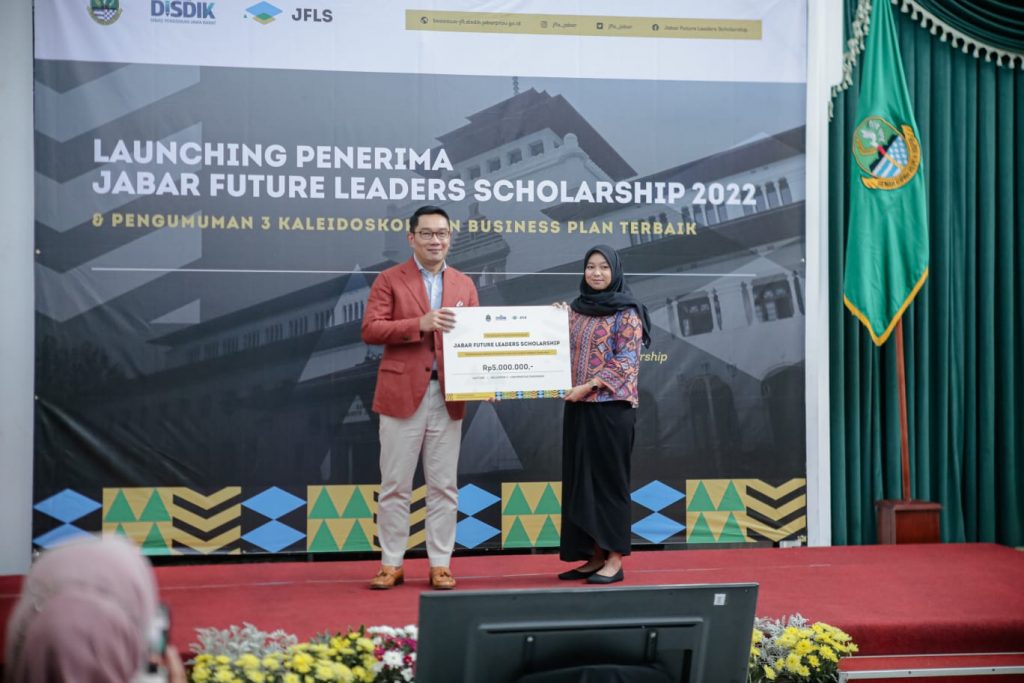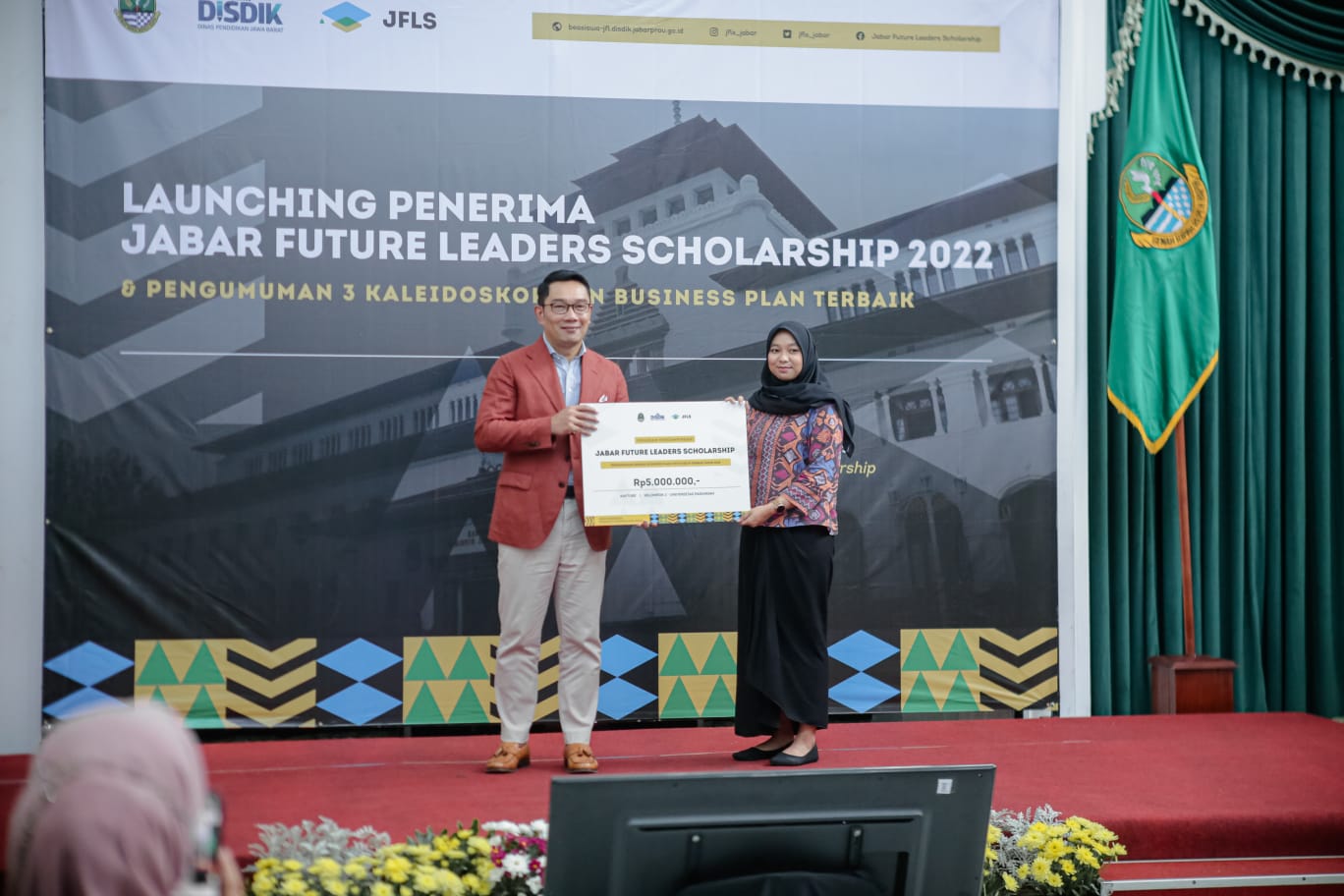
BANDUNG, unpas.ac.id – Innovation of an eco-friendly coffee cup, Kafture, made by student of Universitas Pasundan receives the best business plan in the 2022 Jabar Future Leaders Scholarship (JFLS) tutoring program.
Kafture (Kreatif & Cup from Nature) was made to solve the environmental issue due to the emergence of cafés and coffee shops in Bandung. Kafture was made of mixture of waste coffee grounds, gelatin, glycerol, vinegar, and starch.
Unlike plastic cups which contribute to the volume of waste, Kafture can be used as fertilizer because it is biodegradable. Kafture will blend with the soil and will give benefits to the environment.
Student of Department of Bahasa and Indonesian Literature Education (Pendidikan Bahasa dan Sastra Indonesia, PBSI), who is as well creator of the cup idea made of waste coffee ground, Gita Putri Madhani, said that the project of business plan was carried out along with her teams who are entirely JFLS recipients.
“Although it is still a business plan, we have already carried out research before. The execution and its use trial has not carried out yet, but the idea itself could be able to be business potential since it has its own unique selling point,” she explained, on Thursday, 3 November 2022.
Gita also added that in her house, waste coffee grounds are often used for applying face mask, fertilizer, etc, so there are no waste left off. That is the idea comes from: to utilize coffee ground waste on a large scale into something that is worth selling.
“These cups are disposable and not as solid as plastic cups. We use pure coffee grounds which when mixed into the ground can be used as fertilizer. We’ve tried combining the ingredients and it’s really soil-friendly,” she added.
Selling Price
Currently, there is no plan of having Kafture produced and commercialized. However, based on pitch deck result, the price of one cup of Kafture is 5 thousand rupiahs. Compared to the other plastic cup, its price is indeed a bit expensive, but it has good impacts for the environment.
“We do not set the price too high, since the coffee shop must consider which one is more worth it. If you want it to be cheaper, we can establish an in-kind partner with a coffee shop. They provide coffee grounds, we process it; so, it is a win-win solution,” she said.
Coffee Shops Play a Role in Handling Waste
In order to handle plastic waste and coffee grounds, according to Gita, coffee shops have a responsibility to reprocess them. At a minimum, replace the plastic cup with a tumbler or bottle.
In some coffee shops, this system has been implemented. However, only a few coffee shops treat plastic waste and coffee grounds as useful products.
“Besides fertilizer, coffee grounds can actually be processed into air freshener, shampoo, soap, and even candles. The products can be sold in shops, so on one hand, they help overcome environmental issues, but also offer a unique selling point,” said Gita. (Reta)**
